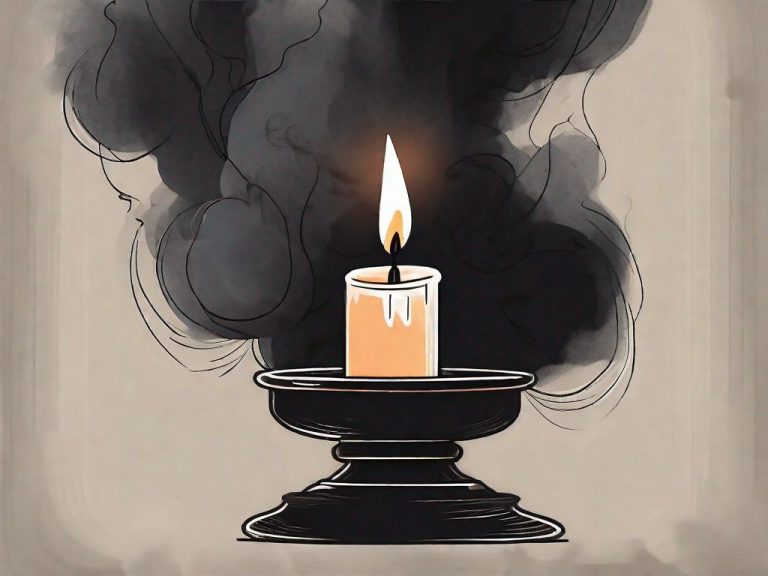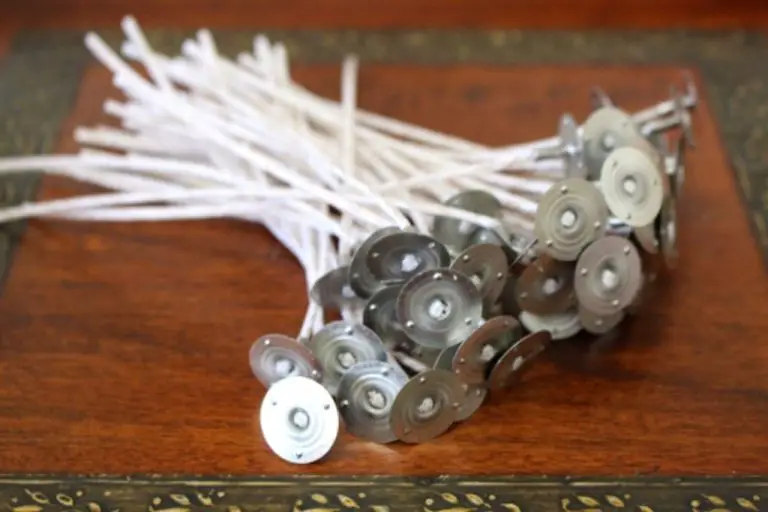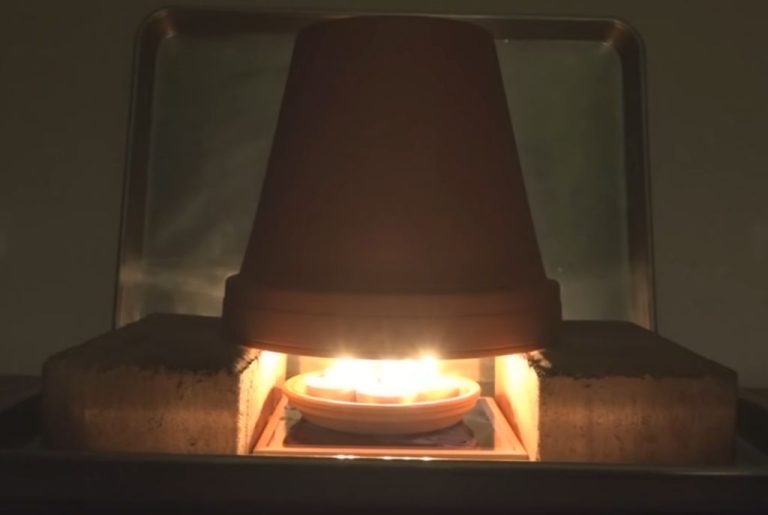Can I Use Citronella Candles Inside The House?
Did you know that the global mosquito repellent candle market was valued at USD 27.9 million in 2018 and is expected to grow at a CAGR of 5.4% to reach USD 85 million by 2033? (https://www.futuremarketinsights.com/reports/mosquito-repellent-candles-market)
Citronella candles, made from oils derived from citronella grass, are a popular type of mosquito repellent candle. The pleasant citronella scent masks human odors that attract mosquitoes. With mosquito-borne illnesses like Zika on the rise, using citronella candles indoors seems tempting. But is it safe?
This article examines the pros and cons of using citronella candles indoors, including safety considerations, alternatives, and tips for safe use inside the home.
What Are Citronella Candles?
Citronella candles are candles that are scented with citronella oil, which comes from lemongrass. The oil contains citronellal, which is a natural insect and mosquito repellent. When the candle is burning, it releases the citronella oil into the air, creating a protective barrier that helps keep mosquitos and other biting insects away.
Citronella oil is extracted from the stems and leaves of different species of lemongrass plants, mainly Cymbopogon nardus and Cymbopogon winterianus. The oil provides the fresh, lemony aroma associated with citronella candles. It’s this natural scent that masks other attractants to mosquitos, making it harder for them to find you.
Citronella candles are often used outdoors during summertime activities like camping, cookouts, and patio gatherings. The candles help create pleasant, bug-free areas so people can enjoy the outdoors without getting bitten. They are a popular, natural alternative to other chemical insect repellents.
Benefits of Citronella Candles
Many people buy and burn citronella candles in hopes of repelling mosquitoes and other insects outdoors. Citronella oil, which is extracted from lemongrass plants, contains compounds like citronellal, geraniol, and citronellol. When diffused into the air, these compounds can act as insect repellents (1). However, research shows that citronella candles are not very effective at driving away mosquitoes. One study found that citronella candles only provided 42 minutes of protection before mosquitoes would start biting again (2). The strong scent from citronella can also help mask human scents that attract bugs. But there are more effective options for repelling mosquitoes outdoors, like DEET sprays and picaridin lotions.
Potential Downsides of Using Indoors
While citronella candles can help repel mosquitoes outdoors, using them indoors comes with some potential downsides to consider:
Produce smoke and soot: Like other candles, citronella candles produce smoke and soot when burned. This can worsen indoor air quality and aggravate respiratory conditions like asthma (Source). The soot released can also dirty surfaces, fabrics, and walls.
Safety Considerations
As with any open flame, citronella candles need to be used with caution indoors. It’s important to never leave a burning citronella candle unattended. Always keep a close eye on the candle when it’s lit. Don’t place citronella candles near anything flammable like curtains, furniture, or bedding as accidents can happen quickly.
It’s recommended to always burn citronella candles on a sturdy, non-flammable surface like a ceramic or metal plate. Trim wicks to 1⁄4 inch before lighting to prevent flare-ups. Pinch or snuff out wicks completely before leaving the area or going to sleep. Avoid moving a lit citronella candle as liquid wax and embers can spill and ignite surfaces. Extinguish citronella candles if the flame flares up higher than 2 inches.[1] Being diligent with basic precautions is key for safe indoor use.
Alternatives for Indoor Use
There are some alternatives to using citronella candles indoors that can help repel mosquitoes and other insects safely.
One option is to use an essential oil diffuser indoors with oils like lemon eucalyptus, lavender, cinnamon, or thyme. The diffused oils will create a repellent aroma in the room. Be sure to only use 100% pure essential oils and follow instructions for safe dilution. Start with short diffusing sessions to test for any reactions.
Another alternative is electric insect repellents like the Mosquito Magnet, which use heat and a basic chemical attractant to trap mosquitoes and other bugs. These can be used indoors safely as long as they are kept away from flammable materials.
Plug-in repellents with natural active ingredients like oil of lemon eucalyptus are also available. Follow directions carefully and keep them away from children and pets.
With some caution, these alternatives can create pest-free indoor spaces without the risks of citronella candle use.
Tips for Safe Indoor Use
While citronella candles can be used indoors, there are some tips to follow to ensure safe usage:
Use citronella candles in well-ventilated areas. Open windows or turn on fans to allow fresh air flow and prevent buildup of scent or smoke. This will dilute any particulates released from the candle (https://suffolkcandles.co.uk/blogs/candles/can-i-use-citronella-candles-indoors).
Trim the wick to 1⁄4 inch before lighting to avoid production of excess smoke. Long wicks create more soot (https://www.inspirationswholesale.co.uk/blog/outdoor/how-do-citronella-candles-work/).
Only burn citronella candles for short periods, such as a few hours at a time. Limit exposure to the scented smoke they produce.
Outdoor vs. Indoor Use
Citronella candles are generally more effective when used outdoors near the skin rather than indoors. When used outside, the citronella scent can act as a mosquito repellent for your immediate surrounding area. The open outdoor environment also allows the citronella fragrance to disperse more freely.

Studies have found that citronella candles are not very effective for repelling mosquitoes in indoor spaces. According to The Wirecutter, research shows citronella candles do not prevent mosquito bites indoors due to poor air circulation. Suffolk Candles explains that the restricted ventilation of indoor areas limits the reach and concentration of the citronella fragrance.
Outdoors, the natural air currents allow the scent to be dispersed widely, creating a protective bubble from mosquitos around you. Indoors, the fragrance is contained in a stagnant space without adequate airflow to be an effective deterrent.
Final Verdict
In general, citronella candles can be used safely indoors on occasion as long as proper precautions are taken. Keeping windows open, avoiding prolonged exposure, and using them in well-ventilated areas can help minimize risks. While citronella oil and smoke may be irritating to some, the health risks are relatively low during temporary use. It’s best to limit indoor burning to 30 minutes or less at a time. For continuous mosquito protection, consider safer alternatives like citronella incense sticks, essential oil diffusers, or LED candles outdoors. With proper ventilation and limited exposure, the occasional use of citronella candles indoors is generally safe.
References
BugGuide. “Citronella Candles.” Accessed March 1, 2023. https://bugguide.net/node/view/46146.
Centers for Disease Control and Prevention. “Mosquito Bite Prevention.” Accessed March 1, 2023. https://www.cdc.gov/features/stopmosquitoes/index.html.
Consumer Reports. “Do Citronella Candles Prevent Bug Bites?” Accessed March 1, 2023. https://www.consumerreports.org/insect-repellent/do-citronella-candles-prevent-bug-bites-a6833204832/.
Environmental Protection Agency. “Citronella Oil.” Accessed March 1, 2023. https://www.epa.gov/insect-repellents/citronella-oil.
National Institutes of Health. “Citronella oil: Is it effective and safe for preventing mosquito bites?” December 2018. https://www.ncbi.nlm.nih.gov/pmc/articles/PMC6547939/.
The Spruce. “Can You Use Citronella Candles Indoors?” Accessed March 1, 2023. https://www.thespruce.com/using-citronella-candles-indoors-4138842.




